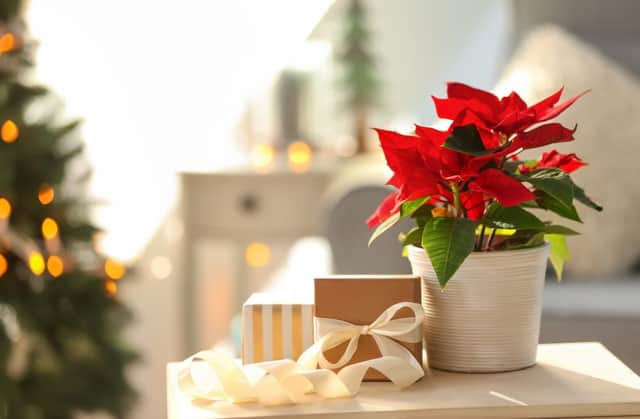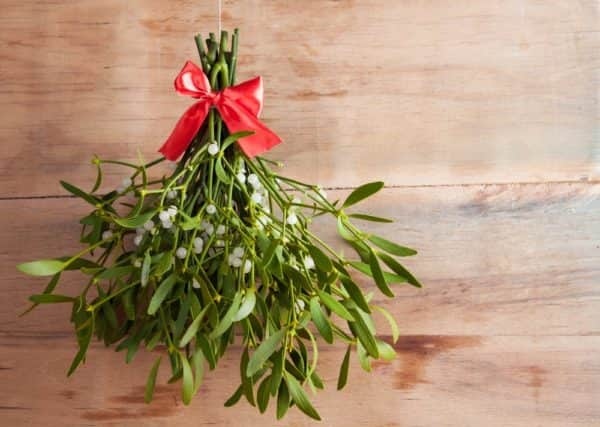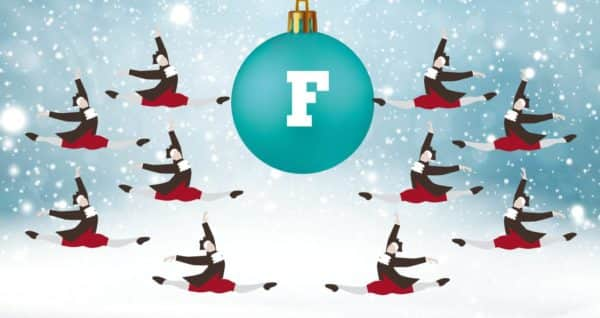These festive plants and decorations can be dangerous for your pet at Christmas


12 Days of Christmas competition
To celebrate the countdown to Christmas we have launched a special festive competition to help you have a happy New Year.
Five winners of our 12 Days of Christmas winter word search will receive an engraved, hand-crafted Bailey bracelet worth £230 and a Cockburn’s Port ‘big night in’ hamper.
Advertisement
Hide AdAdvertisement
Hide AdAll you have to do is find the letter included in the special 12 Days of Christmas content running each day in the Christmas sections of our top JPIMedia websites from December 13-24 and put them together to find a suitable word for this special time of year.
Although we know the 12 Days don’t begin until December 25 we were so excited that we thought we would start the celebrations early.
The festive period is the time for decorations, with houses adorned with colourfully decorated trees and plants.
But some Christmas plants and decorations may pose a danger to your pet. Here’s everything you need to know.
Poinsettia
Advertisement
Hide AdAdvertisement
Hide AdPoinsettia can cause irritation to the mouth and stomach, overproduction of saliva and sometimes vomiting.
Experts at Serenata Flowers explain, “Poinsettia is one of the most iconic festive flowers – the gorgeous poinsettia reaches full bloom in December and its deep red petals are stunning additions to any Christmas decorations.
However, as beautiful as this flower is, its leaves and petals can cause nausea and vomiting if ingested by dogs or cats. Fortunately, the plant is only mildly toxic to pets rather than poisonous so can still be kept in the home over the festive season. To be safe, keep your poinsettia up high in your home on a surface that can’t be easily reached by any curious cats or disobedient dogs.”
Holly
The berries can cause stomach upset and should be kept out of reach of animals.
Mistletoe
Advertisement
Hide AdAdvertisement
Hide AdMistletoe berries can cause drooling, retching and vomiting.
Serenata Flowers adds, “In fact, both mistletoe and holly are more harmful to pets than poinsettias, with the plant causing reactions in pets that you certainly don’t want to be cleaning up over Christmas!
“When placing holly and mistletoe in your home, make sure to keep the plants as high up and far away from pets as possible – a good option is to incorporate this foliage into wreaths that can hang on your doors.”
Lilies
Lilies are poisonous to cats, as is the water they are placed in.
Ivy
Advertisement
Hide AdAdvertisement
Hide AdIvy can cause stomach upset when ingested, and irritation to the skin with prolonged contact.


Christmas Tree
Dogs and cats may love to play in and around the tree at Christmas, but they can pose a potential danger for pets.
Davies Veterinary Specialists explains that Christmas tree needles can have sharp tips that can cut pets’ paws and mouths, and cause internal damage if swallowed. They can also cause stomach upsets.
“Christmas tree lights can cause burns or electrocution if chewed. This is a particular risk to cats.
Advertisement
Hide AdAdvertisement
Hide AdThere is also risk of strangulation or injury if your pet becomes entangled in the lights, so keep them away from pets or only have them in rooms where pets are always in your line of sight.”
It is advisable to secure the base of the tree to reduce the chance of it falling over. Glass baubles can easily break and create sharp shards which are dangerous to animals.”
To help avoid accidents, make sure your tree is secured in a sturdy base and if possible, attached to a wall.


If your cat or dog is a chewer, tape down the electrical cord to fairy lights.
Advertisement
Hide AdAdvertisement
Hide AdThe veterinary specialists also advise avoiding glass baubles, as they can easily shatter if they are knocked off the tree or chewed.
Edible tree decorations, including those made from chocolate, should also be avoided. Salt dough ornaments should be avoided as they can cause a potentially fatal salt toxicosis.